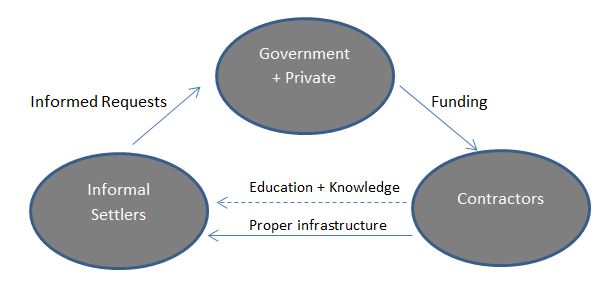An Academic, Government Official and Farmer

by Sichumile-Sanda Spelman
On 4 and 5 March 2014, the Western Cape’s Department of Water Affairs hosted the first of what they are hoping will become an annual event: the 2014 Berg River Symposium. The assembly attracted a wide appeal of delegates, from Government, Private, Non-Governmental to Academic organisations.
The underlying theme for the programme was gathering information from different stakeholders about the issues threatening the livelihood and health of the Berg River catchment, as well as finding practical, sustainable ways that can be implemented to address these issues. This intervention is imperative because the catchment provides a significant percentage of the Western Cape’s fresh water.
This was done through a series of presentations given by the different stakeholders with frequent discussion sessions placed strategically after each theme. The system ran like a well-oiled machine, producing a stimulating environment for people to contribute wholeheartedly, and that they did!
From my perspective, the magic happened over the sessions which were officially termed “Lunch and networking”. It goes to show that enough salad and croissants can get even the best of us talking honestly. One particular conversation I recall was around the issue of informal settlements contributing significantly to the pollution of the catchment. Now take that, a sensitive issue, add an academic, government official and a farmer and you have yourself the perfect recipe for a heated debate. I will not, however, take you through the entire conversation and will rather share a solution they proposed once the dust had settled.
The notion that helping someone is providing them with material resources that you assume they need is both backward and inefficient, because they will either fail to maintain them properly or they will realize that they actually do not need them (e.g. Khayelitsha potty debacle). Rather provide them with in the most basic yet, fundamental resource knowledge and education.

Refer to my ad-hoc figure which attempts to illustrate this approach. The process needs to be a two-tier cycle joining all parties involved to address each presented issue. The first cycle will ensure the provision of knowledge and educate informal settlers (through outreach programmes, inclusion in school curriculums, involvement in such symposiums, etc.) about their situation, its impacts and possible interventions. Only then can they make informed requests back to their funders (government and private organisations) that they will accept when implemented by a qualified, capable contractor.
Much can come from this kind of thinking, because we should still be a nation that provides people with insight rather than inadequate and/or misplaced resources. Only then can we truly address the issues of the people and our environment!
Reference:
Landing image: stock.xchng. [Online]. Available: http://www.sxc.hu/photo/1421859 [11 March 2014]